
The Atanasoff–Berry computer (ABC) was the first automatic electronic digital computer. Limited by the technology of the day, and execution, the device has remained somewhat obscure. The ABC's priority is debated among historians of computer technology, because it was neither programmable, nor Turing-complete. Conventionally, the ABC would be considered the first electronic ALU – which is integrated into every modern processor's design.
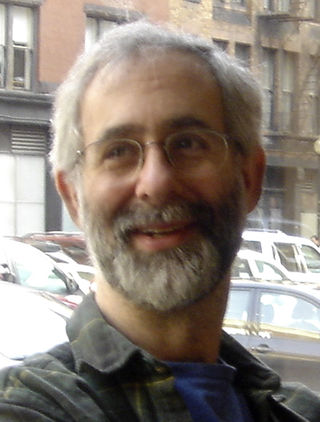
Daniel Singer Bricklin is an American businessman and engineer who is the co-creator, with Bob Frankston, of the VisiCalc spreadsheet program. He also founded Software Garden, Inc., of which he is currently president, and Trellix, which he left in 2004. He currently serves as the chief technology officer of Alpha Software.
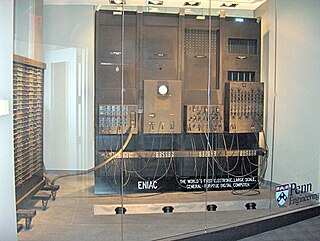
ENIAC was the first programmable, electronic, general-purpose digital computer, completed in 1945. There were other computers that had combinations of these features, but the ENIAC had all of them in one computer. It was Turing-complete and able to solve "a large class of numerical problems" through reprogramming.

John Adam Presper Eckert Jr. was an American electrical engineer and computer pioneer. With John Mauchly, he designed the first general-purpose electronic digital computer (ENIAC), presented the first course in computing topics, founded the Eckert–Mauchly Computer Corporation, and designed the first commercial computer in the U.S., the UNIVAC, which incorporated Eckert's invention of the mercury delay-line memory.
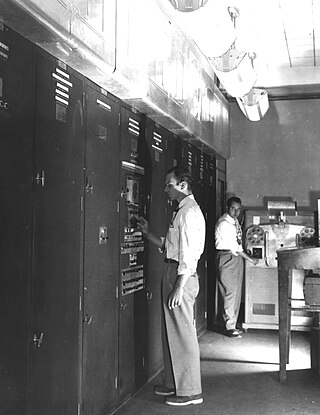
EDVAC was one of the earliest electronic computers. It was built by Moore School of Electrical Engineering, Pennsylvania. Along with ORDVAC, it was a successor to the ENIAC. Unlike ENIAC, it was binary rather than decimal, and was designed to be a stored-program computer.

John William Mauchly was an American physicist who, along with J. Presper Eckert, designed ENIAC, the first general-purpose electronic digital computer, as well as EDVAC, BINAC and UNIVAC I, the first commercial computer made in the United States.

Herman Heine Goldstine was a mathematician and computer scientist, who worked as the director of the IAS machine at the Institute for Advanced Study and helped to develop ENIAC, the first of the modern electronic digital computers. He subsequently worked for many years at IBM as an IBM Fellow, the company's most prestigious technical position.
The Harold Pender Award, initiated in 1972 and named after founding Dean Harold Pender, is given by the Faculty of the School of Engineering and Applied Science of the University of Pennsylvania to an outstanding member of the engineering profession who has achieved distinction by significant contributions to society. The Pender Award is the School of Engineering's highest honor.

Joseph A "Josh" Fisher is an American and Spanish computer scientist noted for his work on VLIW architectures, compiling, and instruction-level parallelism, and for the founding of Multiflow Computer. He is a Hewlett-Packard Senior Fellow (Emeritus).

Frances Elizabeth Holberton was an American computer scientist who was one of the six original programmers of the first general-purpose electronic digital computer, ENIAC. The other five ENIAC programmers were Jean Bartik, Ruth Teitelbaum, Kathleen Antonelli, Marlyn Meltzer, and Frances Spence.
Herman Lukoff was a computer pioneer and fellow of the IEEE.
The Eckert–Mauchly Award recognizes contributions to digital systems and computer architecture. It is known as the computer architecture community’s most prestigious award. First awarded in 1979, it was named for John Presper Eckert and John William Mauchly, who between 1943 and 1946 collaborated on the design and construction of the first large scale electronic computing machine, known as ENIAC, the Electronic Numerical Integrator and Computer. A certificate and $5,000 are awarded jointly by the Association for Computing Machinery (ACM) and the IEEE Computer Society for outstanding contributions to the field of computer and digital systems architecture.
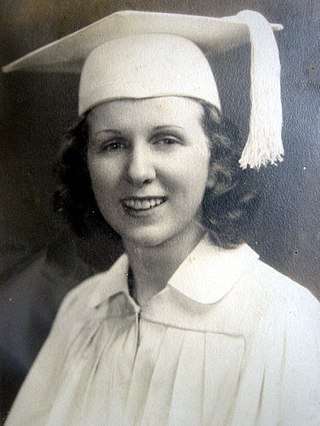
Kathleen Rita Antonelli, known as Kay McNulty, was an Irish computer programmer and one of the six original programmers of the ENIAC, one of the first general-purpose electronic digital computers. The other five ENIAC programmers were Betty Holberton, Ruth Teitelbaum, Frances Spence, Marlyn Meltzer, and Jean Bartik.

Jean Bartik was one of the original six programmers for the ENIAC computer.
Honeywell, Inc. v. Sperry Rand Corp., et al., 180 U.S.P.Q. 673, was a landmark U.S. federal court case that in October 1973 invalidated the 1964 patent for the ENIAC, the world's first general-purpose electronic digital computer. The decision held, in part, the following: 1. that the ENIAC inventors had derived the subject matter of the electronic digital computer from the Atanasoff–Berry computer (ABC), prototyped in 1939 by John Atanasoff and Clifford Berry, 2. that Atanasoff should have legal recognition as the inventor of the first electronic digital computer and 3. that the invention of the electronic digital computer ought to be placed in the public domain.
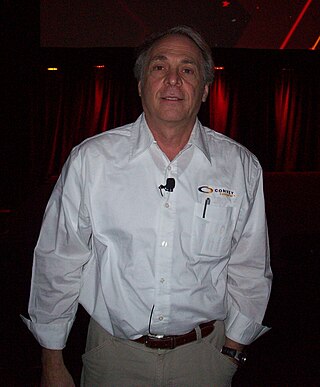
Steven "Steve" J. Wallach is an engineer, consultant and technology manager. He is a Seymour Cray Computer Engineering Award recipient.
The Computer Pioneer Award was established in 1981 by the Board of Governors of the IEEE Computer Society to recognize and honor the vision of those people whose efforts resulted in the creation and continued vitality of the computer industry. The award is presented to outstanding individuals whose main contribution to the concepts and development of the computer field was made at least fifteen years earlier. The recognition is engraved on a silver medal specially struck for the Society.
Jeffrey Chuan Chu (朱傳榘), born in Tianjin, Republic of China, was a pioneer computer engineer. He received his BS from the University of Minnesota and his MS from the Moore School at the University of Pennsylvania. Chuan was a member of the engineering team that designed the first American electronic computer, the ENIAC. ENIAC was designed by John Mauchly and J. Presper Eckert of the University of Pennsylvania, U.S.
John Grist Brainerd was an American electrical engineer who served as principal investigator on the project to build ENIAC, the first general-purpose electronic digital computer. Later, he was dean of the Moore School of Electrical Engineering at the University of Pennsylvania.
Norman Paul Jouppi is an American electrical engineer and computer scientist.











